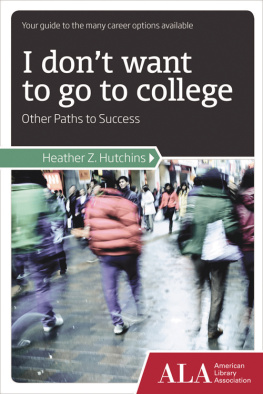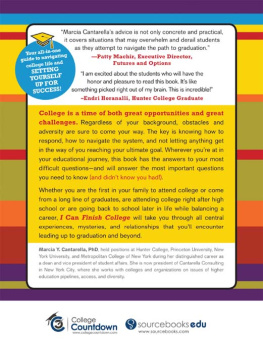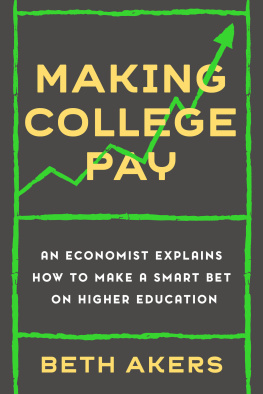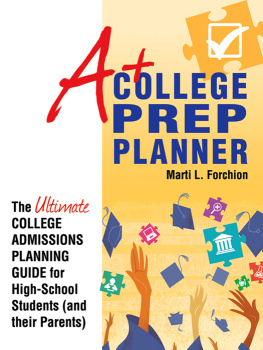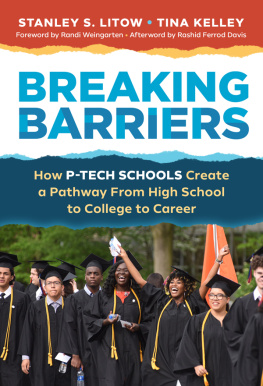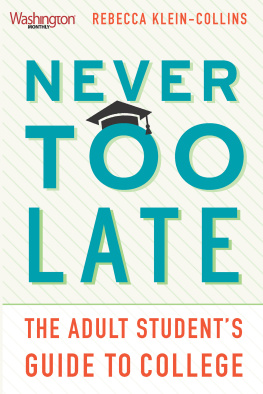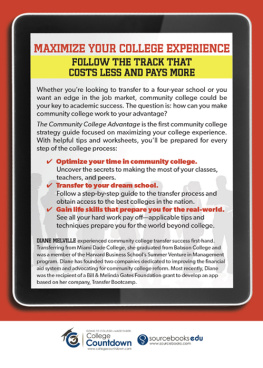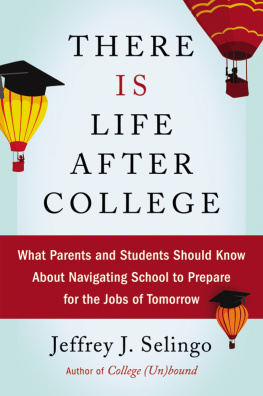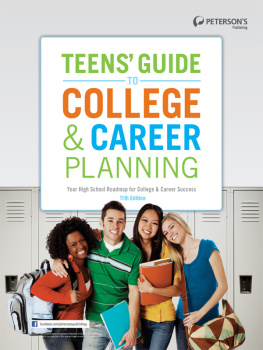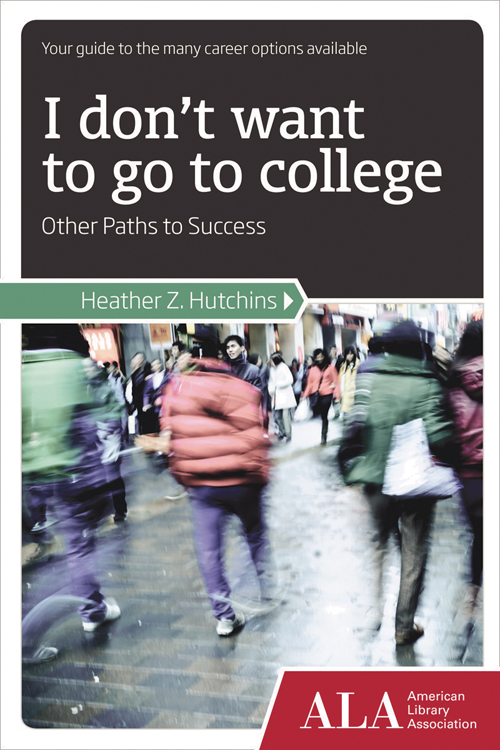
HURON STREET PRESS PROCEEDS SUPPORT THE AMERICAN LIBRARY ASSOCIATION IN ITS MISSION TO PROVIDE LEADERSHIP FOR THE DEVELOPMENT, PROMOTION, AND IMPROVEMENT OF LIBRARY AND INFORMATION SERVICES AND THE PROFESSION OF LIBRARIANSHIP IN ORDER TO ENHANCE LEARNING AND ENSURE ACCESS TO INFORMATION FOR ALL.
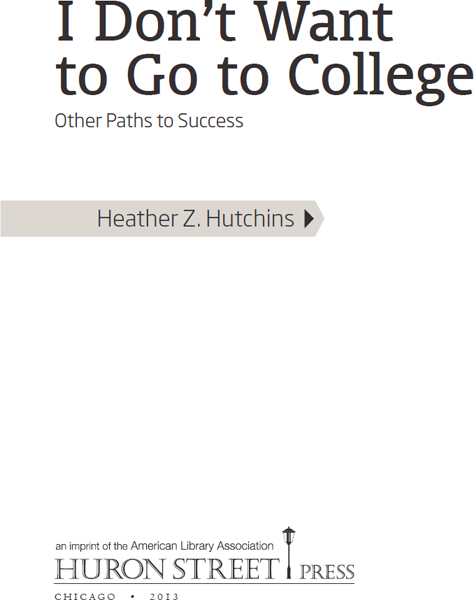
2013 by the American Library Association. Any claim of copyright is subject to applicable limitations and exceptions, such as rights of fair use and library copying pursuant to Sections 107 and 108 of the U.S. Copyright Act. No copyright is claimed for content in the public domain, such as works of the U.S. government.
Published by Huron Street Press, an imprint of ALA Publishing
Extensive effort has gone into ensuring the reliability of the information in this book; however, the publisher makes no warranty, express or implied, with respect to the material contained herein.
ISBNs: 978-1-937589-01-1 (paper); 978-1-937589-31-8 (PDF); 978-1-937589-32-5 (ePub); 978-1-937589-33-2 (Kindle). For more information on digital formats, visit the ALA Store at alastore.ala.org and select eEditions.
Library of Congress Cataloging-in-Publication Data
Hutchins, Heather Z.
I dont want to go to college : other paths to success / Heather Z. Hutchins.
p. cm.
Includes .
ISBN 978-1-937589-01-1 (pbk. : alk. paper) 1. Vocational guidance. 2. Vocational education. 3. Occupational training. I. Title.
HF5381.H88 2013
650.1dc23
2012003394
Cover image Pan Xunbin/Shutterstock, Inc.
Contents
Finding Your Skills and Interests and Exploring the Job Landscape
Learning on the Job
Where Apprenticeships and Specialized Training Can Take You
Where Credentials Can Take You
Where Two Years of College Can Take You
Where Should You Look?
How to Succeed
Showing Them What You Know
How to Be Likable
Estimating Costs and Applying for Financial Aid
And the number of students going into debt to go to college is increasing:
In 2010, two-thirds of students who graduated from four-year colleges and universities borrowed money for school; in 1993, fewer than half borrowed money to pay for school.
In 2008, 84 percent of undergraduates had credit cards, compared to 67 percent in 1998.
In addition, college costs continue to rise. The average cost of tuition and fees for public four-year colleges and universities, even adjusted for inflation, has more than tripled in the last three decades, and it looks as if this trend will continue.
Its no wonder that many students are deciding that college is not for them. In fact, it doesnt have to be. There are other paths to a successful career. The following chapters cover all of the steps to finding a path that works for you.
As you read, you will see that there are many training and education options that will widen your range of opportunities if you have no desire to attend a four-year college or university. Even if you dont want to attend a four-year college, you will most likely want to receive some additional training or education eventually. The average unemployment rate in 2011 for people with only a high school education was about 9.4 percent, but for individuals with some education and no degree, this number falls to 8.7 percent. For those with a two-year associate degree, the unemployment rate drops to 6.8 percent. Pay follows a similar pattern in reverse, with salary increasing the more training and education people receive.
Luckily, you have many options. Apprenticeship programs offer training for jobs that are projected to grow faster through 2020 than jobs you can get with any other education or training level. And with apprenticeship programs, you are typically paid for your training.
Keep an open mind as you read this book. If none of the jobs profiled in these pages appeals to you, you can use the career exploration tools in to find some that do.
Good luck with your career search! You are already taking a good first step.
Notes
).
.
Sallie Mae Foundation, How Undergraduate Students Use Credit Cards: Sallie Maes National Study of Usage Rates and Trends 2009 (Wilkes-Barre, PA: Sallie Mae Foundation, 2009), 5.
Ibid., 8, 11.
.
.
.
Its All about You
Finding Your Skills and Interests and Exploring the Job Landscape
Some people are lucky enough to be born knowing exactly what they want to bewhat they would like to do as a career. For the rest of us, figuring out what we want is more of a journey. Depending on your attitude, the journey can be an adventure with fun along the way or a scary trek through very dark woods. Dont worry. With just a little effort on your part, you can find many possible career options that you will enjoy and that will make you a living wage.
This chapter covers the five primary ways to find career possibilities that suit your interests:
Talking to professional career counselors
Exploring what kinds of jobs are out there
Taking career and personality assessment tests
Conducting informational interviews
Taking an inventory of your strengths and interests
In all five, the most important skills are the ability to ask questions and keep an open mind about the careers all around you. Especially in the early stages of your search, do not limit yourself to obvious choices. Move a little further afield to look at unusual jobs, jobs around the country or around the world, and jobs in emerging fields.
Meet with a Career Counselor
One good way to figure out your preferred career is to talk to a professional career counselor, such as your high school guidance counselor or a counselor at a local college career center, at a private firm, or with a local or federal jobs program. Career counselors are trained to assist you in figuring out your job and life goals. Talking through your interests with a professional will narrow the scope of your career search.
High School Counselor
If you are still in high school or are a recent graduate, the easiest start is to visit your high school counselor and ask for advice. Most high school counselors are trained to help students figure out their career interests. Sometimes the counselor will just talk to you. Sometimes youll get brochures or computer printouts. And sometimes youll find yourself sitting at a computer either taking a career assessment test or looking up jobs that sound interesting in a career database. One of the big advantages to talking to your high school counselor is that its free. Most of the career testing offered by this type of counselor is free, too.
Local College Career Center
The two- and four-year colleges in your area will almost certainly have career centers. In many cases, career center staff will help community members with their career searches for a small fee. If you didnt get enough help from your high school counselor, or if youve been out of high school for a while, this is a good, reasonably priced option. These professionals help college students every day, so they have a good idea of what the local job market looks like. They are also excellent sources of information about the best jobs for the future.
As you are researching your future career, mentally try on each job you encounter. Would you feel comfortable doing this job every day? Why or why not? Asking yourself these questions will help you focus on possibilities that not only sound interesting generally but also make sense for you personally.
Next page
